Wouldn’t everything be a bit easier if we were able to understand little kids?
Parents and teachers would be in a more beneficial position if they were able to do so. But, that is not an easy task.
Child psychology is much more complex than said. Keeping that in mind I have highlighted here some most popular child psychology books for teachers.
View These Amazing Books
Therefore, it becomes essential for us to put efforts towards it. As nobody innately has such skills of perfectly understanding all the needs and difficulties of a child.
Parents and teachers with time learn how to raise and educate children properly.
Understanding the reason behind a child’s certain behavior, how their emotions work, or how their brains develop after every stage of their development has become important to learn in the modern world.
For this purpose too, like always books will be there at your aid.
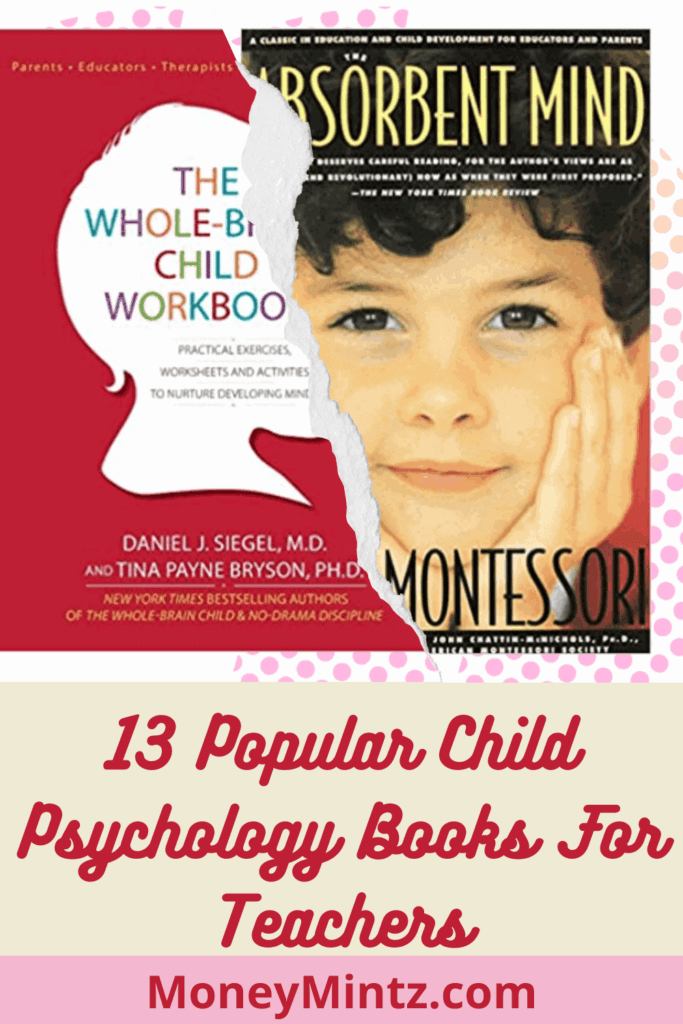
Books are not only more convenient but also more informative just at the expense of some money. Therefore by giving a read to the books mentioned below, not only you will be able to better understand children but also you could help them in their tough times.
So today’s article is all on child psychology. We will share a list of the most popular books on child psychology for teachers with you.
Grab a working pen and a sheet to note down the titles, so here we begin!
DISCLAIMER: MoneyMintz is reader-supported. If you make a purchase through links on our site, we may sometimes earn a commission at no additional cost to you. As an Amazon Associate, we earn from qualifying purchases.
List of the 13 Most Popular Child Psychology Books For Teachers
1. The Whole-Brain Child: 12 Revolutionary Strategies to Nurture Your Child’s Developing Mind, Survive Everyday Parenting Struggles, and Help Your Family Thrive
– by Daniel J. Siegel, Tina Payne Bryson
“Too often we forget that discipline really means to teach, not to punish. A disciple is a student, not a recipient of behavioral consequences.”

Click Here for Customer Reviews on Amazon
The Whole-Brain Child: 12 Revolutionary Strategies to Nurture Your Child’s Developing Mind, Survive Everyday Parenting Struggles, and Help Your Family Thrive by Daniel J. Siegel, Tina Payne Bryson — The authors explain in simple language how a child’s brain works and matures. They show that children’s right brain with all the emotions is most likely to take over the logic of the left brain. Thus this is the reason why children act out of control sometimes. It is a well-written book that includes 12 strategies that can be used to deal with day to day struggles of a child. The book points out that a child’s behavioral problem is mostly due to their normal developmental phase, so teachers and parents just need to give them additional support so they can manage their growing emotions and feelings well. This book is a must-read to help develop emotional health and intelligence in children. At the end of the book, there is a summary chart for readers to learn how to respond to children of different age groups.
2. The Psychology of the Child
– by Jean Piaget, Bärbel Inhelder, Helen Weaver
“A well written and ready to follow the book.”
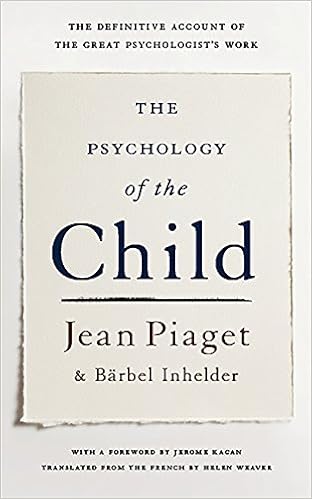
Click Here for Customer Reviews on Amazon
The Psychology of the Child by Jean Piaget, Bärbel Inhelder, Helen Weaver — We highly recommend this book to those who are planning to enter into the field of education. This book focuses on modern childhood education and development. Jean Piaget along with Barbel Inhelder presents a comprehensive analysis of every stage of a child’s cognitive development. The book also teaches its readers the different stages of psychological development of a child and by understanding, this one can also learn how to raise them in a much better way. This book is a great aid in the challenging role of parenting.
3. How to Talk So Kids Will Listen & Listen So Kids Will Talk
– by Adele Faber, Elaine Mazlish, Kimberly Ann Coe
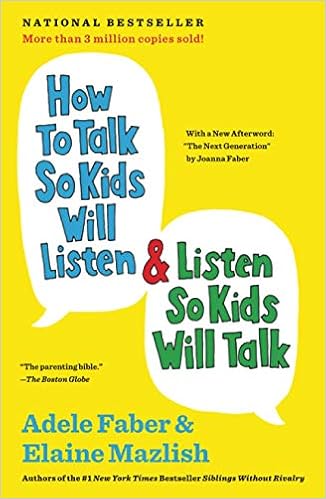
Click Here for Customer Reviews on Amazon
How to Talk So Kids Will Listen & Listen So Kids Will Talk by Adele Faber, Elaine Mazlish, Kimberly Ann Coe — This is a perfect book that will be a helpful guide to every parent and educator. It emphasizes how to improve communication skills with children. If readers follow the given approach of authors, then a less stressful relationship can be formed with kids. The book is full of practical and innovative ways to solve the problems that arise with raising and educating kids. To sum up, this particular book is all about how to communicate effectively with a child and making sure that they are being heard and understood.
4. Beyond Behaviors: Using Brain Science and Compassion to Understand and Solve Children’s Behavioral Challenges
– by Mona Delahooke
“One of the best books you will ever read as a career of a child with special needs.”

Click Here for Customer Reviews on Amazon
Beyond Behaviors: Using Brain Science and Compassion to Understand and Solve Children’s Behavioral Challenges by Mona Delahooke — A fantastic read for all those who work with children. This book is a great source of information for educators and as well as parents to help them deal with children who have difficult behaviors. The author has based this book on neuroscience research and puts much emphasis on the connection between mind and body. She tries to make her readers understand that the body and mind work hand in hand to create a behavior. Mona Delahooke provides some practical examples of how you can help children through compassion and relationship. The book includes interesting case studies, handouts, and helping tools that can be used for both children and adults. The handouts are clear and simple and user-friendly too. ‘Beyond behaviors’ thus becomes a must-read for teachers, parents, therapists, or anyone working with children to provide support in their behavior.
5. Psychology and the Teacher
– by Dennis Child
“A very informative book, must-read books for training teachers.”

Click Here for Customer Reviews on Amazon
Psychology and the Teacher by Dennis Child — One of the many books that give a complete and up-to-date introduction to psychology. For all the teachers. Professor Dennis Child, the author, covers several topics in his book. He talks about child development, child motivation, special needs education, human difference, classroom management, and assessment. Gender and cultural diversity, behavioral problems, learning environment, and social development are also discussed by him. This book and the information in it is termed as culturally important by many scholars and is specifically designed for those who need to become acquainted with psychology.
6. The Whole-Brain Child Workbook: Practical Exercises, Worksheets and Activities to Nurture Developing Minds
– by Daniel J. Siegal and Tina Payne Bryson

Click Here for Customer Reviews on Amazon
The Whole-Brain Child Workbook: Practical Exercises, Worksheets and Activities to Nurture Developing Minds by Daniel J. Siegal and Tina Payne Bryson — This book can be used by parents, educators, caregivers, and even clinicians. Though the book focuses on how a parent’s mental health has effects on a child, Daniel Siegal states that this workbook can be used by anyone. He explains his principles and techniques to everyone who wishes to understand and help their child mature. Siegel and Bryson together discuss the science behind the developing minds of children and provide their readers with questions and exercises to make them practice the concepts taught. This book will for sure teach you how to maintain a good relationship with children.
7. Child Psychology and Development for Dummies
– by Charles H. Elliott and Laura L. Smith
“Perfect for beginners and excellent at explaining kids behavior.”

Click Here for Customer Reviews on Amazon
Child Psychology and Development for Dummies by Charles H. Elliott and Laura L. Smith — This book can become your go-to guide. It is very informational, covering topics like the cognitive development of a child, how one can diagnose and treat it, and overcoming cognitive barriers that hinder learning and development. The book guides teachers, parents, and caregivers to help a child develop self-esteem, control impulses, and also form good relationships. To sum up it is a fine book that discusses the subject of child psychology in an easy-to-understand language.
8. The Absorbent Mind
– by Maria Montessori
“The child has his own laws of development, and if we want to help him grow, it is a question of following these, not of imposing ourselves upon him.”
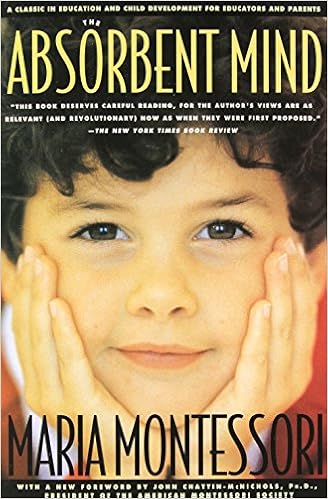
Click Here for Customer Reviews on Amazon
Listen to the Audiobook
The Absorbent Mind by Maria Montessori — Maria Montessori provides a window into the minds of children through this book. The book clearly shows its readers how a child’s mind can absorb things around him. Therefore, she takes a philosophical approach toward teaching a child. According to her, education should be focused more on providing an environment where a child is independent and can learn to his best potential. This book is a perfect read for any child educator as it helps at tackling problems that might arise in preschools or daycare centers.
9. The Teenage Brain: A Neuroscientist’s Survival Guide to Raising Adolescents and Young Adults
– by Amy Ellis Nutt and Frances E. Jensen
“A valuable resource for parents, youth workers, educators, and anyone involved with teens in any way. The book is engaging, understandable, and extremely informative.”

Click Here for Customer Reviews on Amazon
Listen to the Audiobook
The Teenage Brain: A Neuroscientist’s Survival Guide to Raising Adolescents and Young Adults by Amy Ellis Nutt and Frances E. Jensen — We all know that teenagers could be pretty hard to handle and their behavior can not be taken for granted. This book here offers scientific as well as practical suggestions on how one can try to understand the incredible brains of teenagers and help them to organize themselves more properly. To conclude, this book is mainly aimed at helping people understand the difficulties and challenges faced by youngsters when they mature and their brain develops.
10. How Children Develop
– by Robert A. Siegler
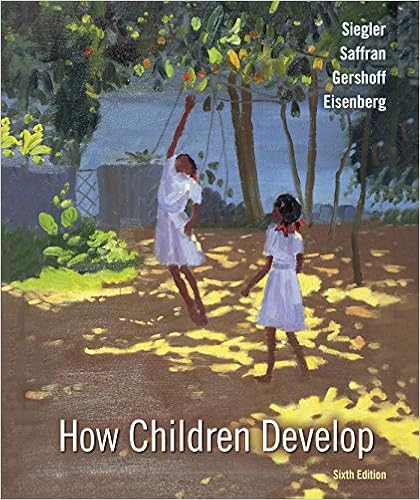
Click Here for Customer Reviews on Amazon
How Children Develop by Robert A. Siegler — This book has established itself as a textbook for teachers and researchers. It is very comprehensive and gives a great introduction to childhood development. Unlike other books, this book talks about development in a very detailed and chronological manner, beginning from conception to growing up into an adult. This book is very interesting that will make you engaged in it just after a few chapters. The book effectively shows how various aspects can change the behavior of a child, for example, the environment in which he or she is. All in all, it is a great book with interesting cases to study from and get a wider view of a child’s brain.
11. How To Talk So Little Kids Will Listen: A Survival Guide to Life with Children Ages 2-7
– by Joanna Faber and Julie King

Click Here for Customer Reviews on Amazon
Listen to the Audiobook
How To Talk So Little Kids Will Listen: A Survival Guide to Life with Children Ages 2-7 by Joanna Faber and Julie King — Dealing with young kids could be quite troublesome for parents as well as their teachers. However, this book will be your game changer. You need to read this book, then only you will believe in its effectiveness. The book will become your help guide, making you familiar with various communication strategies that can be adapted to initiate a positive relationship. The authors have given many examples and scenarios through which one can more clearly understand kids’ behavior. A young child tends to learn from his surroundings and later catches it too to develop into his life, therefore much attention should be paid to them and they should be given the freedom to express themselves. The book does not forget to point out the importance of engagement and competitiveness of kids.
12. Smart But Scattered: The Revolutionary “Executive Skills” Approach to Helping Kids Reach Their Potential
– by Peg Dawson and Richard Guare

Click Here for Customer Reviews on Amazon
Smart But Scattered: The Revolutionary “Executive Skills” Approach to Helping Kids Reach Their Potential by Peg Dawson and Richard Guare — Parents and teachers must realize that attention and emotional regulations are linked. Therefore, focusing on strengthening a certain skill will also lead to an improvement in some other skills. This book is all about how teachers and parents can help children. The first and foremost step this book states is to be aware of the child’s weaknesses and strong points. Then only encourage them to improve them in the lacking field. This book will show you how you can help them to stay focused and keep their emotions and urges under control. Some various worksheets and activities can help boost up their skills.
13. The Nurture Assumption: Why Children Turn Out the Way They Do
– by Judith Rich Harris

Click Here for Customer Reviews on Amazon
The Nurture Assumption: Why Children Turn Out the Way They Do by Judith Rich Harris — This book too talks about child development like the other books, but there is this one difference among them. The difference in this book is that the author believes that parents have less or no influence on how their kids will grow up to become in the future. She instead believes that the experience in the environment outside of the home has a much larger role in determining a child’s role and behavior. In simple language, children socialize by themselves. This book effectively can combine insights from psychology, sociology, and anthropology.
FAQs
What is Child Psychology?
Child psychology is the study of cognitive, emotional and social aspects in children between birth and adolescence. It’s part of developmental psychology and as such, it also includes other aspects of development like motor skills, language acquisition, moral reasoning and religious beliefs. The main purpose of child psychology is to understand how and why children develop the way they do (including their strengths and weaknesses), but it also includes the application of this knowledge towards improving the lives of children and their families through therapy or educational measures.
What are the factors affecting child development?
The factors affecting child development can be physiological, psychological, genetic, environmental or sociological. The relationship between these factors is complex as they are all interdependent. Even though genetics and environment have a very strong impact on child development, both are strongly influenced by other social determinants. For example, socio-economic status has been shown to have a direct effect on language acquisition in children. This effect has also been linked to parental interaction with their children at a young age, which also depends on child’s early environment. Child psychology takes into account how all these different aspects interact with each other and how they impact child development over time.
What is the future of Child Psychology?
At present, there are numerous ongoing researches in child psychology. A few researchers have been working on discovering what factors that contribute to a healthy development of children. While others are working on developing strategies for efficient development of children who face challenges such as sensory disorders, intellectual disabilities, behavioral issues or autism spectrum disorder. The aim behind all these researches is to create a better future for all children across the globe.
What are educational requirements for Child Psychologists?
Child psychologists must have a PhD, clinical psychology or other relevant doctoral degree. Training begins after earning a graduate degree in clinical psychology with an emphasis on children and adolescents. Students typically complete supervised, post-doctoral fellowship training that lasts from two to four years before becoming eligible for licensure as child psychologists. Child psychologists are also required to earn a license in their state before they can legally practice.
What is the best psychology book for beginners?
The best psychology book for beginners should present information in a clear, concise manner. The best books should also be up-to-date, so readers know they are reading about current trends and research. A great introductory psychology book will include discussion on all major branches of psychology, as well as provide practical advice for those looking to apply their knowledge outside of the classroom. Check “The Whole-Brain Child” – one of the bestsellers on this subject.
What questions should I ask my child psychologist?
While all psychologists take their education seriously, child psychologists in particular are passionate about getting to know their patients and listening to their concerns. Because they’re using these meetings to decide what’s best for your child, they can answer any questions you might have regarding therapy sessions or how best to help your child.
These are some examples of questions that a parent may have for a psychologist:
1. Is my child at risk for depression?
2. Will my child outgrow his/her shyness?
3. Should I punish him/her for bad behavior or reward good behavior?
4. Can my kid handle starting school next year?
5. What should I do if my little one says he/she hates me?
6. How do children learn language skills?
What are some child development questions?
Child development research focuses on issues that face children as they grow up. Here are a few questions that we have about child development. Have you ever wondered what happens when your kids go to their first day of school? Does their personality change? Why do some kids turn out to be so great, while others never amount to anything? Many factors are involved in answering these questions, such as social interactions and genetics.
What is child psychology, and how is it different from developmental psychology?
The term child psychology can be confusing, as it overlaps with developmental psychology. However, child psychologists focus on cognitive, emotional and social aspects in children between birth and adolescence (up to 18 years old). Meanwhile, developmental psychologists cover these same topics through a lifespan lens. In general, you can think of developmental psychology as more scientific while child psychology is more geared toward understanding children’s development within their families or environments.
Who invented child psychology?
Jean Piaget, who was a Swiss psychologist, developed some of our most popular theories on child development. He pioneered research into object permanence – knowing that objects exist even when they cannot be seen – and explored how young children think about their world. In 1926 he published The Child’s Conception of Physical Causality (PDF), which became his most famous work.
Is child psychology a good career?
If you are considering a career in child psychology, you may be wondering whether or not it’s a good option for you. In truth, every person has his or her own preference on what constitutes a good career. Some people like to work independently, others like to work with children but don’t want to pursue a career in child psychology. To answer your question directly though, yes; child psychology can be a good choice if that’s what you want out of your career!
How can I learn child psychology?
You can learn child psychology from a variety of sources. Some universities offer Master’s programs in child psychology that cover everything from cognitive development to social behavior, but such programs tend to be both expensive and time-consuming. A good alternative might be an online course or certificate program that focuses on developmental psychology or childhood studies. These courses usually provide students with a strong base in theory while also giving them some practical experience working with children.
How do you explain psychology to a child?
The discipline of psychology encompasses many fields that study behavior. As such, there isn’t just one answer to what psychology is. Instead, like a chameleon, it changes color depending on whom you ask.
For example, if you asked your parents, they might tell you that psychology is a branch of medicine that studies brain diseases like Alzheimer’s or schizophrenia.
Ask your grandparents, however, and they may have heard about psychologists in old movies as people who helped criminals with their mental health issues after prison.
These stereotypes are both partially correct, but by themselves do not define what psychology really means.
So, how do you explain psychology to a child?
Let’s start at its most basic level.
Psychology is defined as the scientific study of behavior and mental processes.
To understand what psychology is, we must first break down its parts into simple terms children can understand.
Behaviors are actions an individual performs and includes things like walking, talking, running and writing.
Mental processes refer to our internal reactions to external stimuli—how we feel when mom yells at us for missing our assignments, or how we feel when a bee stings us.
Thinking about these two aspects of human nature helps us better understand psychology because now we know what areas of life psychologists focus on—actions and reactions between individuals within society.
Conclusion
We all have been a child at one point in time. We can understand a child’s psychology better.
The above are the books that I think would be of some use and advantage to those who deal with children. That is why I would recommend you to read these books at least once.
Read: Best Books for English Teachers and Students
Especially to teachers, as the more you read the information, the more you will gain knowledge on how to deal with children in the best ways. And, as all these books suggested, understanding a child’s mind first will be very beneficial in the long run of maintaining a positive relationship with them.
So, dive into the books and aim for having peaceful cooperation and bond with the kids around you!
You can visit Wikipedia to learn more about Developmental Psychology.
I would be very glad if you could post your comments in case you feel we have not included your favorite book in this section titled – Most Popular Child Psychology Books For Teachers.
Related Articles:
- Getting Lost in a Great Story: Book Recommendations for Reluctant Readers
- 9 Books We’ll Never Get to Read: Exploring the Unfinished Manuscripts of Literary Legends
- Jeff Lindsay Biography & Books in Order | The Dexter Book Series
- 10 Best Books to Overcome Fear and Anxiety
- 35 Best Crime Novels Ever Written [Mystery & Crime Books]
- Super Powerful Books on Happiness — What are Yours?

![18 Best Sewing Books for Kids and Beginners [Updated 2022] 20 18 Best Sewing Books for Kids and Beginners [Updated 2022]](https://moneymintz.com/wp-content/uploads/2021/09/Books-on-Sewing-768x427.jpg)
![20 Best Animation Books for Animators -Beginners & Experienced [2021] 21 20 Best Animation Books for Animators -Beginners & Experienced [2021]](https://moneymintz.com/wp-content/uploads/2021/08/Best-Animation-Books.jpg)

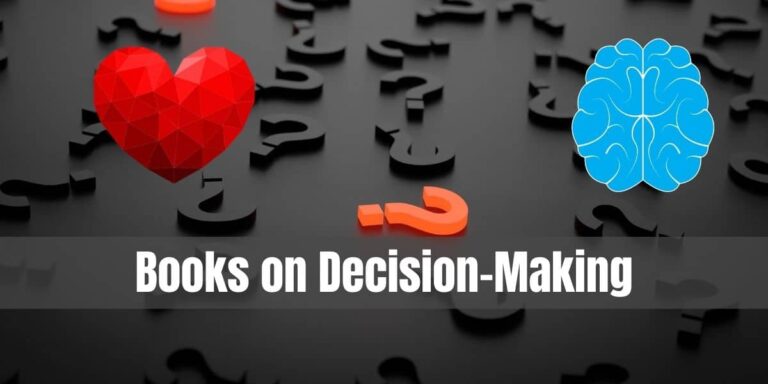

![Wings of Fire (21 Book Series) Compilation for Easy Reference [2022] 25 Wings of Fire (21 Book Series) Compilation for Easy Reference [2022]](https://moneymintz.com/wp-content/uploads/2021/09/Wings-of-Fire-Book-Series-1-768x427.jpg)